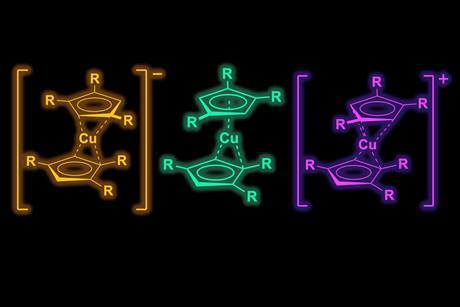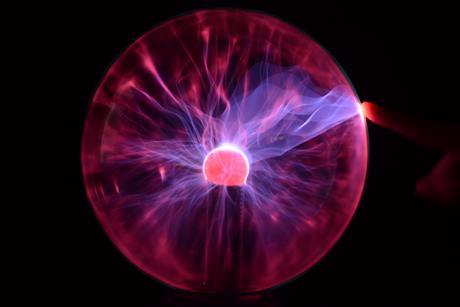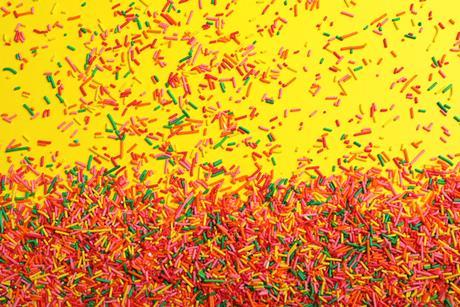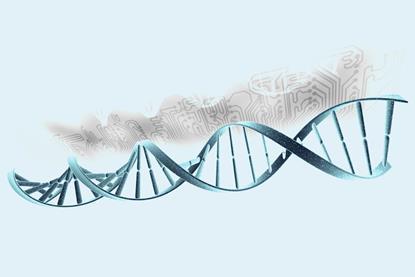Stable copper sandwich complexes complete the 3d transition-metal metallocene series
75 years after the discovery of ferrocene, stable metallocenes have now been made with all of the 3d transition metals
Citric acid cycle a ‘garbage compactor’ as well as an energy powerhouse
Textbook metabolic cycle is still surprising scientists as they delve into its details
Radical chemistry pioneer Moses Gomberg probably made a trivalent carbon years before he realised
Recreation of Gomberg’s experiments suggests that he may have made a hypovalent carbon species years before reporting their discovery
The quest to understand where atoms end
Atomic size measurements like van der Waals and covalent radii are central to chemistry, but are they grounded in reality?
Benzylated backbone behind bulkiest N-heterocyclic carbene yet
Series of stable nitrogen radical chains synthesised
Unruly [1,2]-Wittig reaction tamed to produce products with precise stereochemistry
Rising carbon dioxide levels leave conifer forests struggling to get enough nitrogen
Heat waves that push up atmospheric nanoparticle levels might explain higher death tolls
Mixed-material microrobots created from 3D-printed templates
Highlights
Unravelling the chemistry behind the sea’s bioluminescent sparkle
Researchers are piecing together the unusual chemical reactions that enable dinoflagellates to create spectacular light displays in tropical bays. But the mechanism behind their bioluminescence remains one of nature’s most puzzling chemical mysteries
Unlocking the power of plasma for chemistry
Scientists are using non-thermal plasma to produce fertiliser and long-chain hydrocarbons. Mason Wakley talks to the chemists harnessing the fourth state of matter
New separation methods aim to improve global rare earth supply
Rare earth elements are essential for modern technology, but their similar chemistry makes separation difficult and expensive. Now researchers are exploring new technologies to streamline processing and bring down costs.
How RNA reveals clues to life’s origins on Earth
The discovery of catalytic RNA transformed our understanding of life’s beginnings. Clare Sansom explores how the RNA world hypothesis bridges the gap between non-living chemistry and the first cells
How soft electronics are transforming medical devices
Degradable pacemakers and artificial neurons showcase how flexible, tissue-compatible electronics are revolutionising medicine. But translating these materials from lab bench to clinic requires solving complex structure–function relationships
Topics
The quest to understand where atoms end
Atomic size measurements like van der Waals and covalent radii are central to chemistry, but are they grounded in reality?
Mapping tool delivers quantitative visualisations of steric interactions
Technique uncovers subtle interactions that previous methods have missed
Google’s AlphaGenome wants to do for DNA what AlphaFold did for proteins
Model predicts effect of mutations on sequences up to 1 million base pairs in length and is adept at tackling complex non-coding regions
AI tool dramatically reduces computing power needed to find protein-binding molecules
Purer silicon lets robust quantum computing get started on a new medium
Anomeric effect cannot be explained by hyperconjugation alone
AI agents set to democratise computational chemistry
AI flexes its protein design muscles for harsh environments
Embodying polymer chemistry with a purpose by upcycling plastics and trapping PFAS
For Frank Leibfarth, focussing on reactivity and selectivity helps him bridge the gap between fundamental and applied research
Roman-era ink reveals surprising chemical complexity
2000-year-old residue indicates the Romans wrote with iron-gall inks hundreds of years earlier than expected
The chemist using curry to understand indoor air pollution
Ashish Kumar’s research reveals how cooking shapes the air we breathe indoors
Traditional yoghurt recipe reveals ants’ fermentation power
Rebecca Trager meets a cross-disciplinary team investigating an ancient way to make yoghurt, which involved a trip to a tiny Bulgarian village
Green chemistry and sustainable manufacturing in India
Pathways, policies and the role of chemists in building a circular chemical economy
AAAS annual meeting & plasma chemistry
In this episode, we discuss reflections from this year’s AAAS annual meeting, the latest advances in plasma chemistry, and hear the latest headlines.
Unlocking the power of plasma for chemistry
Scientists are using non-thermal plasma to produce fertiliser and long-chain hydrocarbons. Mason Wakley talks to the chemists harnessing the fourth state of matter
Textiles in the age of sustainability: alternative methods for fabric dyeing and treatment
Learn about advances in sustainability of textile production – join us on 31 March
Global analysis identifies trends in platform chemical research
Ammonia and methanol lead shift towards greener technologies
Exploring the frontiers of the periodic table: bismuth catalysis and its applications
Learn about state-of-the-art synthesis coming from one of the world’s leading catalysis research groups
Ireland’s five-year plan for research aims to boost PhD numbers and spin-outs
Strategy wants 3800 PhDs and 2000 postdoctoral researchers trained to support economy
Chinese Academy of Sciences proposes capping pay-to-publish fees for high-profile journals
Journals charging article processing charges for open access in excess of $5000 are likely to be hit
As a first-generation student, I didn’t have a clue what I was doing
And that brought challenges and unexpected opportunites
‘Ukrainians are a strong nation – we persevere’: Four years on scientists remain resilient in face of adversity
Researchers in Ukraine hold on to hope and plan for a future after the war ends
‘We’re in the rupture’: AAAS leadership reflects on past year under Trump
Sudip Parikh, head of largest US science organisation, describes how the nation’s research community has gone from ‘turmoil’ upon Trump’s re-election to ‘rupture’ today




























